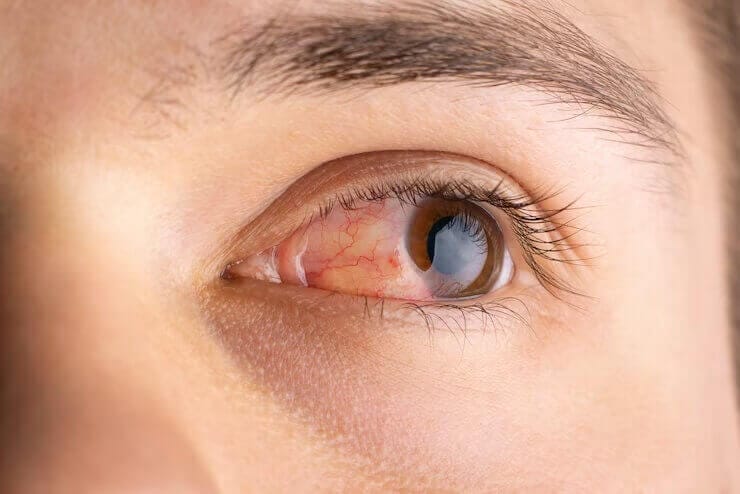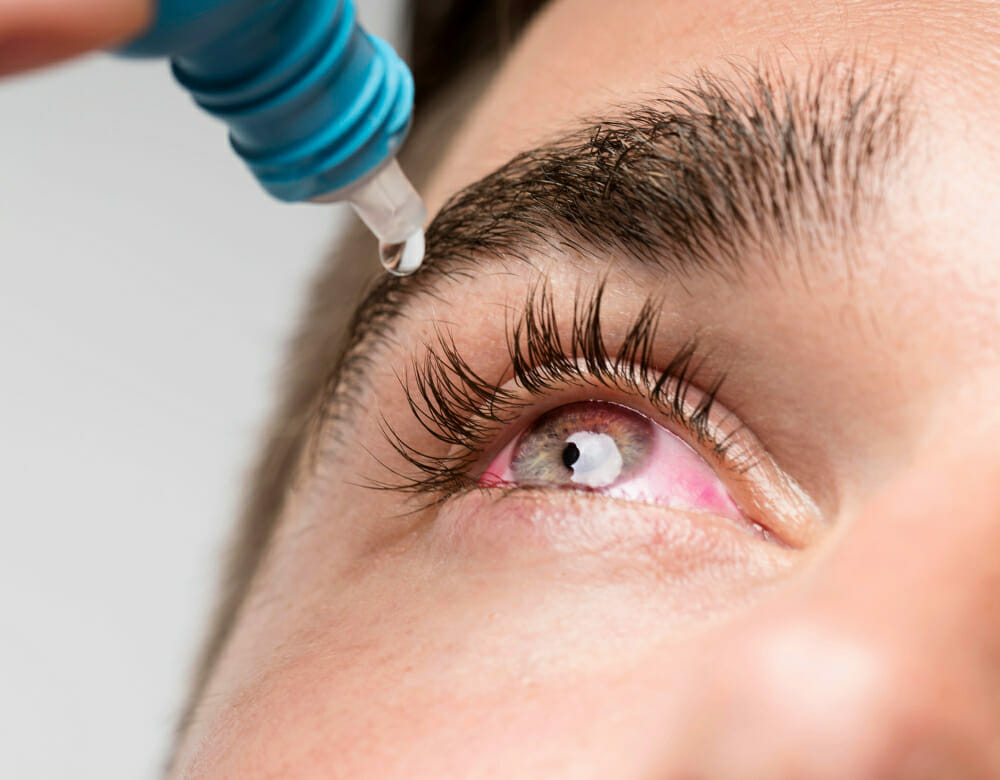Sjogren's Syndrome Treatment Options
Artificial tears
One of the most common and simple Sjogren's Syndrome treatments for dry eye symptoms is the use of artificial tears. These over-the-counter eye drops provide temporary relief by lubricating the ocular surface and can be used as needed throughout the day. There are various formulations available, and our eye care professional can recommend the most suitable option based on your specific needs and preferences. Artificial tears are generally considered to be a temporary solution. Learn more about artificial tears.
Stimulating the trigeminal nerve
A relatively new product on the market for dry eye sufferers, Tyrvaya, utilizes a unique medicated nasal spray that stimulates the trigeminal nerve to produce tears. This is a superior outcome to wetting the eyes with drops, as this approach does not impact the stability of the tear film or expose the eye to preservatives or allergens.
Punctal plugs
For patients with moderate to severe dry eye symptoms, punctal plugs can be an effective Sjogren's Syndrome treatment option. These small, biocompatible devices are inserted into the tear ducts to block tear drainage, allowing the tears to remain on the eye's surface for a longer period. This procedure can be performed by our optometrist, and the plugs can be temporary or permanent, depending on the patient's needs and response to the treatment. Learn more about punctal plugs.
Prescription eye drops
In some cases, prescription eye drops may be recommended as a Sjogren's Syndrome treatment to address dry eye symptoms. These may include medications like cyclosporine (Restasis) or lifitegrast (Xiidra), which work by reducing inflammation and improving tear production. Our optometrist will closely monitor your response to these medications and adjust the treatment plan accordingly. Learn more about Xiidra and Restasis.
Moisture chamber glasses
Patients with severe dry eye symptoms or those who are frequently exposed to harsh environments may benefit from moisture chamber glasses as part of their Sjogren's Syndrome treatment. These specially designed eyewear create a humid environment around the eyes, helping to retain moisture and reduce tear evaporation. Our eye doctor can help you find the right moisture chamber glasses based on your needs and lifestyle.
Lid hygiene
Maintaining good eyelid hygiene is crucial in managing dry eye symptoms related to Sjogren's Syndrome treatment. This may include gently cleaning the eyelids with a warm, damp cloth or using over-the-counter lid scrubs.
Ensuring proper lipid production
For someone with Sjorgens, it is critical that the tears do not evaporate quickly. To ensure this the meibomian glands need to produce the top protective oil or lipid layer. By heating and expressing those glands the eyes are able to protect the tears from evaporation. Heating is best done in the office with accompanying at-home maintenance by applying warm compresses to the eyes to stimulate the release of oils from the meibomian glands, improving the quality of the tear film.
Scleral Lenses
The groundbreaking clinical guidelines set out by the Dry Eye Workshop, Tear Film and Ocular Surface Society 2, indicated the use of custom contact lenses called scleral lenses for the advanced treatment of dry eye. These contacts have a vaulted design, leaving room for a barrier of saline between the eye and the lens. Furthermore the contact sits on the less sensitive white of the eye. Learn more about scleral lenses for dry eye.
Amniotic Membranes
Amniotic membranes are an advanced treatment that places a special bandage contact on the eye. These are made with bio preserved tissue that is placed on the eye to protect, nourish and rejuvenate the corneal cells. Learn more about amniotic membranes.
Nutritional supplements
Some studies have shown that oral supplements containing omega-3 fatty acids may help improve dry eye symptoms in patients with Sjogren's Syndrome as part of their treatment plan. Consult with our optometrist before starting any nutritional supplements, as they can provide guidance on the appropriate dosage and potential interactions with other medications.

















